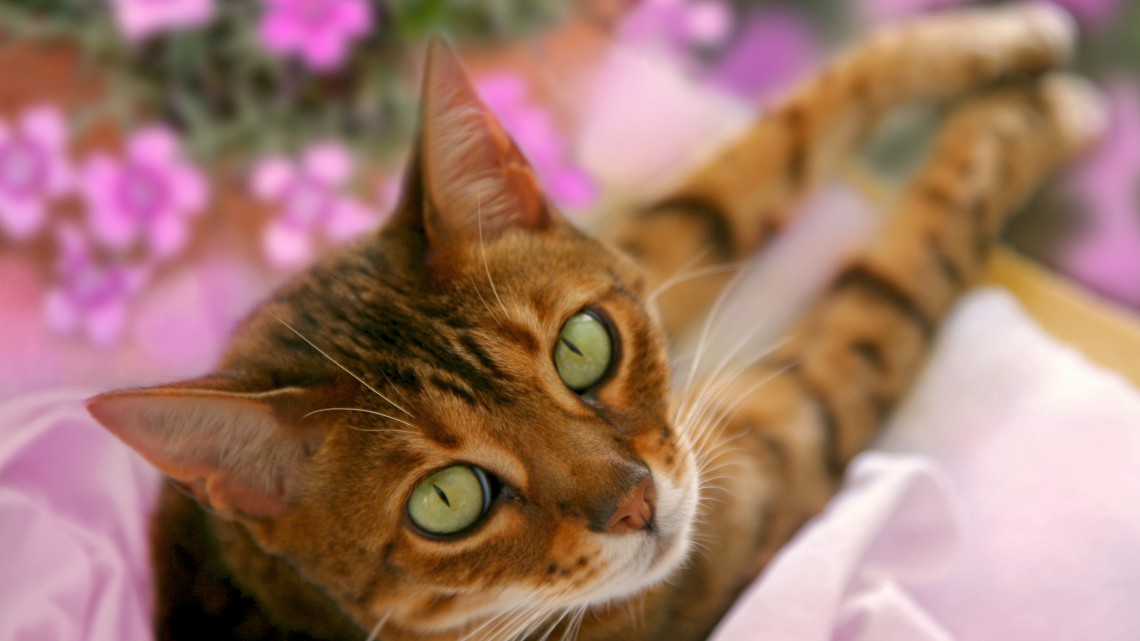What do you do when your cat stops using his litter tray? Coping with inappropriate urination is challenging, but the problem can be solved.
Miles, a neutered black and white domestic shorthair, was about three years old when Susan first noticed he was urinating in various locations throughout the house. In order to rule out any medical reasons for his behavior, Susan took him to her veterinarian. He found no medical reason for Miles’ indiscretion and suggested they try a course of anti-anxiety medication. Being holistically-minded, Susan decided to first try a more natural approach to Miles’ issue.
While cats are normally fastidious with their litter box habits, inappropriate urination is a common problem. There are numerous reasons why a cat may refuse to use his litter box, many of them stress related, but urinary tract infections or other physical disorders may be the cause. A cat with a UTI may associate the litter box with pain and stop using it. Luckily, urinary tract infections respond wonderfully to homeopathy or herbal treatments.
Conflict between cats in a household, or the addition of a new cat (or other animal), can cause inappropriate urination. Sometimes the arrival of a new person or baby can upset a cat enough to make him stop using the litter box. A move to a different house, a rearrangement of furniture, the prolonged absence of the primary caregiver or even a change in diet could also trigger the problem.
Why do cats spray?
In their natural state, cats spray urine to mark territory or, in the case of females, to advertise sexual availability. Usually neutering and spaying stop this undesirable behavior, but stress may cause a cat to start spraying throughout the house.
Usually, if a cat is spraying, the problem is behavioral. Territorial disputes between cats can be difficult to address. Sometimes the dispute is not between the cats inside the house, but involve those roaming free outside. If you notice your cat spraying near doors or windows, an outside cat has likely triggered the incident.
Is it the litter box?
Susan always kept Miles’ litter tray clean and he was still defecating and sometimes urinating in it, so she ruled it out as the cause of the problem. Even if the litter box is spotlessly clean, though, sometimes a cat will decide he doesn’t like the location, the type of litter, or something new that has been placed near the box. Some creative rearranging may be the answer.
The litter box can also be problematic when there is more than one cat in the household. The general rule of thumb is one litter box for every two cats, but cats don’t always play by the rules and you may need to provide a separate box and sometimes even a separate location for each cat.
If the cat is urinating in only one area of the house, moving the litter box to that location may solve the problem.
A covered litter box is great for many situations but can sometimes be an issue in a multi-cat household. If one cat terrorizes the other while exiting a covered litter box, he may be afraid to re-enter it. Try adding an uncovered litter box.
Try these solutions
- Although it’s not a natural product, Feliway has been proven to be successful approximately 86% of the time, according to Cat Faeries, a website dedicated to solving inappropriate urination (catfaeries.com). It’s a synthetic pheromone that mimics the scent of cat cheek gland secretions (considered by cats to be a friendly pheromone). It can be applied to areas where spraying is a problem.
- If you prefer an all-natural solution, homeopathy can help. Because this modality deals with the whole cat, a consultation with an experienced homeopathic practitioner has the added benefit of addressing the inappropriate urination as well as any other behavioral or physical issues your cat may have. You should note, however, that homeopathy sometimes does not offer an instant cure so you’ll need to be patient.
- Flower essences can also be useful. In the Bach system, Chestnut Bud together with Walnut remedies are recommended for inappropriate urination and spraying. The remedies can be added to your cat’s water or food.
- An animal communicator may be able to help figure out what is upsetting your cat and causing him to stop using the litter box.
- Feeding your cat a diet consisting of high quality meat protein, either raw or canned, will help keep urinary problems in check. The increased bioavailability of stress-reducing amino acids and vitamins in meat, especially if it’s raw, is an added bonus.
After thinking about what may have caused Miles to stop using his litter box, Susan realized she had been spending a lot more time outside the household than usual. In addition to her full time job, she had been taking some evening classes, leaving Miles alone longer than he was accustomed to. She made it a point to spend as much time with him as she could. She also consulted with a homeo- path and installed Feliway diffusers throughout the house. In less than two months, Miles was back to using his litter box, the inappropriate urination stopped completely, and both Miles and Susan were a lot happier.







No Comment